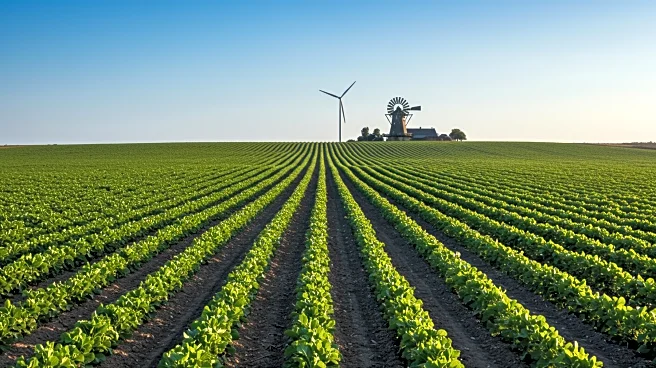What is the story about?
What's Happening?
Economic analysts from Terrain, working with Farm Credit associations, have released a report series titled 'The Big Shrink,' examining the effects of global population decline on agriculture. The report predicts a peak in global population between 2065 and 2070, with implications for American agriculture. Analysts suggest a shift from bulk exports to domestic processing for value-added products. The corn industry is seen as well-positioned due to its existing focus on ethanol and bio-based products. Soybeans face medium- to long-term risks and need to expand domestic markets for value-added products. The report emphasizes the importance of strategic trade partnerships and sustainability in agriculture.
Why It's Important?
The anticipated population decline presents both challenges and opportunities for U.S. agriculture. Farmers may need to adjust their strategies to focus on quality and sustainability, rather than quantity, to remain competitive. The shift towards value-added products could enhance profitability and open new markets, particularly in bio-based industries. This transition may require increased investment in research and development, as well as infrastructure to support domestic processing capabilities. The report highlights the need for proactive planning to ensure the long-term viability of agricultural commodities in a changing global landscape.
What's Next?
Farmers and agricultural organizations are encouraged to explore new product development and expand domestic processing capacities. Strategic trade partnerships with developing countries could be crucial for maintaining export markets. The industry may see gradual changes in production techniques and market focus, with an emphasis on sustainability and innovation. Stakeholders will need to monitor global trends and adapt to evolving consumer demands to capitalize on emerging opportunities.














